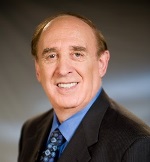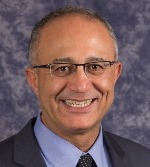The Future Project Culture
SERIES ARTICLE
By Dr. Harold Kerzner
Senior Executive for Project Management
The International Institute for Learning (IIL)
New York and Florida, USA
and
Dr. Al Zeitoun, PgMP, PMI Fellow
Global Future of Work Executive
Siemens DISW
Ohio and Maryland USA
Introduction _________________________________________________________
Both project management trainers and training organizations advertise on project management websites how modern developments, such as Agile, Scrum, artificial intelligence (AI), and project management offices (PMOs) can and will solve most of your project management issues if implemented correctly. Although they are correct for the most part, what they often neglect to discuss are the challenges and issues that must be overcome during implementation, including possible negative effects.
As organizations design the future project culture, implementing changes in project management policies and procedures affects more than just a few people. Each person affected can react differently to the changes especially if they fear they will be removed from their comfort zone. People often also have hidden agendas which can conflict with the expected changes and the impact of the changes may not be fully recognizable until sometime later. There can exist numerous barriers to implementation and achieving the desired favorable outcomes.
Determining what can go wrong has always been a challenge because we start out with high levels of expectations. Many coaches and trainers today emphasize “hoping for the best but planning for the worst.” The negative outcomes are not always visible or predictable, and therefore may not be discussed during training sessions. A few of the possible challenges with implementing changes are discussed in this paper.
Searching for Lessons Learned ______________________________________
Senior management in a North American financial institution recognized the benefits of implementing project management. They established a waterfall methodology for their projects and began seeing successes. However, they also recognized the need for extracting best practices and continuously updating their project management policies and procedures. Unfortunately, this proved more difficult than they had imagined.
Project managers were expected to debrief their project teams at the end of each project and identify lessons learned from both successful and unsuccessful activities. The information would then be turned over to the company’s strategic project management office (PMO) for evaluation. Unfortunately, very little information was being identified, and almost all of the information came from successful activities. The PMO became concerned that continuous improvement to project management practices was extremely slow and decided to conduct a detailed audit to determine the causes.
As seen in Figure 1, significant causes were identified as the primary issues for lack of meaningful information on lessons learned:

Figure 1 – Value of Lessons Learned
https://pixabay.com/illustrations/ai-generated-woman-skills-success-8774130/
- Project managers had poor collaboration skills with team members and were unable to encourage team members to speak freely. Project managers had never been trained in how to debrief project team members effectively.
- People must be willing to share knowledge without fear of criticism. Team members were afraid to discuss lessons learned from any unsuccessful situations or activities that could reflect poorly upon them during their performance reviews.
- Lessons learned reviews were being conducted at the end of each project and team members that were no longer working on the projects were not being interviewed. This meant that some important lessons learned were not being discovered.
More…
To read entire paper, click here
Editor’s note: This series of articles is by Dr. Harold Kerzner and Dr. Al Zeitoun, the co-authors, along with Dr. Ricardo Vargas, of the textbook Project Management Next Generation: The Pillars for Organizational Excellence, published by Wiley in 2022. Learn more about the authors in their profiles at the end of this article.
How to cite this work: Kerzner, H. and Zeitoun, A. (2024). The Dark Side of Implementing Project Management Changes, The Future Project Culture, PM World Journal, Vol. XIII, Issue VIII, August. Available online at https://pmworldlibrary.net/wp-content/uploads/2024/08/pmwj144-Aug2024-Kerzner-Zeitoun-Dark-Side-of-Implementing-PM-Changes-future-culture-series-2.pdf
About the Authors

Harold Kerzner, Ph.D., MS, M.B.A
Senior Executive Director for Project Management
International Institute of Learning
New York & Florida, USA
![]()
Dr. Harold Kerzner is Senior Executive Director for Project Management for the International Institute for Learning (IIL). He has an MS and Ph.D. in Aeronautical and Astronautical Engineering from the University of Illinois and an MBA from Utah State University. He is a prior Air Force Officer and spent several years at Morton-Thiokol in project management. He taught engineering at the University of Illinois and business administration at Utah State University, and for 38 years taught project management at Baldwin-Wallace University. He has published or presented numerous engineering and business papers and has had published more than 60 college textbooks/workbooks on project management, including later editions. Some of his books are (1) Project Management: A Systems Approach to Planning, Scheduling and Controlling; (2) Project Management Metrics, KPIs and Dashboards, (3) Project Management Case Studies, (4) Project Management Best Practices: Achieving Global Excellence, (5) PM 2.0: The Future of Project Management, (6) Using the Project Management Maturity Model, and (7) Innovation Project Management.
He is a charter member of the Northeast Ohio PMI Chapter.
Dr. Kerzner has traveled around the world conducting project management lectures for PMI Chapters and companies in Japan, China, Russia, Brazil, Singapore, Korea, South Africa, Canada, Ireland, Germany, Spain, Belgium, Poland, Croatia, Mexico, Trinidad, Barbados, The Netherlands, Sweden, Finland, Venezuela, Columbia, United Arab Emirates, France, Italy, England, and Switzerland. He delivered a keynote speech at a PMI Global Congress on the future of project management.
His recognitions include:
- The University of Illinois granted Dr. Kerzner a Distinguished Recent Alumni Award in 1981 for his contributions to the field of project management.
- Utah State University provided Dr. Kerzner with the 1998 Distinguished Service Award for his contributions to the field of project management.
- The Northeast Ohio Chapter of the Project Management Institute gives out the Kerzner Award once a year to one project manager in Northeast Ohio that has demonstrated excellence in project management. They also give out a second Kerzner Award for project of the year in Northeast Ohio.
- The Project Management Institute (National Organization) in cooperation with IIL has initiated the Kerzner International Project Manager of the Year Award given to one project manager yearly anywhere in the world that demonstrated excellence in project management.
- The Project Management Institute also gives out four scholarships each year in Dr. Kerzner’s name for graduate studies in project management.
- Baldwin-Wallace University has instituted the Kerzner Distinguished Lecturer Series in project management.
- The Italian Institute of Project Management presented Dr. Kerzner with the 2019 International ISIPM Award for his contributions to the field of project management.
Dr. Harold Kerzner can be contacted at hkerzner@hotmail.com

Dr. Al Zeitoun, PgMP, PMI Fellow
Global Future of Work Executive
Siemens DISW
Ohio & Maryland USA
![]()
Dr. Al Zeitoun is a Future of Work, business optimization, and operational performance excellence thought leader with global experiences in strategy execution. His experiences encompass leading organizations; delivering their Enterprise Digital and Business Transformation; guiding fitting frameworks implementations; and using his empathy, engineering insights, and collaboration strengths to successfully envision new business models and execute complex missions across diverse cultures globally.
In his current role with Siemens, he is a Senior Director of Strategy responsible for driving the global program management practices, Master Plan governance, and enabling the Strategy Transformation processes and priorities.
In his position, as the Executive Director for Emirates Nuclear Energy Corporation, Abu Dhabi, UAE, he was responsible for creating the strategy execution framework, achieving transformation benefits, governance excellence, and creating the data analytics discipline necessary for delivering on the $40B complex country energy mission roadmap.
At the McLean, USA HQ of Booz Allen Hamilton, Dr. Zeitoun strategically envisioned and customized digitally enabled EPMO advisory, mapped playbooks, and capability development for clients’ Billions of Dollars strategic initiatives. Furthermore, he led the firm’s Middle East North Africa Portfolio Management and Agile Governance Solutions.
With the International Institute of Learning, Dr. Zeitoun played a senior leader and global trainer and coach. He was instrumental in driving its global expansions, thought leadership, and operational excellence methodology to sense and shape dynamic ways of working across organizations worldwide. He speaks English, Arabic, and German and enjoys good food, travel, and volunteering. Dr. Al Zeitoun can be contacted at zeitounstrategy@gmail.com









